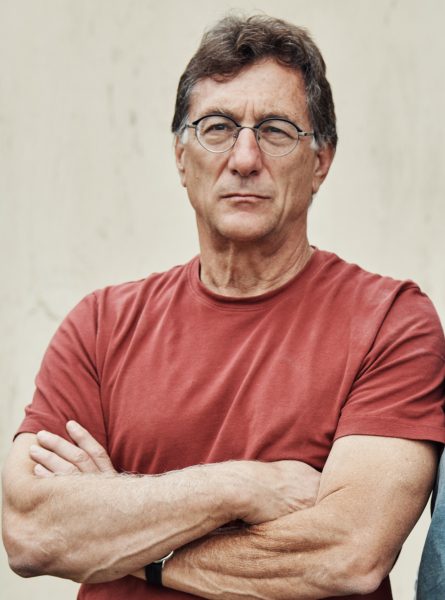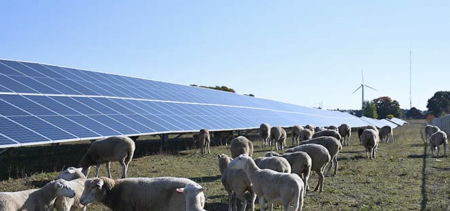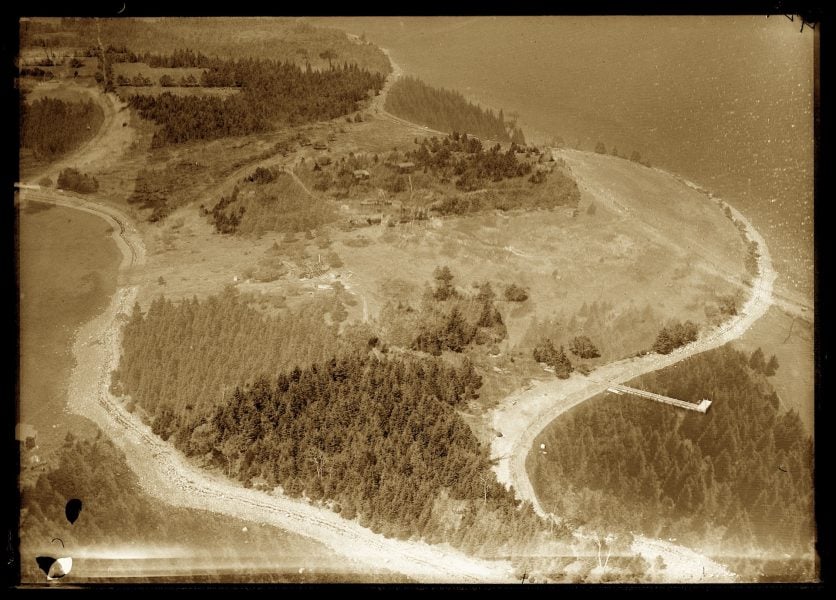
Marty Lagina will deliver the First-Year Engineering Series Lecture to Michigan Tech’s incoming engineering majors this Monday, October 2 at 6 pm. The lecture will take place on campus at the Rozsa Center Auditorium.
Lagina is CEO of Heritage Sustainable Energy. He is also a winemaker, and an executive producer of the long-running reality TV show, The Curse of Oak Island, now in its 11th season on the History Channel—and, he is a Michigan Tech engineering alumnus.
The title of Lagina’s lecture is “I’m Not Here to Give You Advice.”
“The First-Year Engineering Series Lecture provides an exciting opportunity for our students to hear from some of the nation’s most innovative engineering leaders,” says Mary Raber, chair of the Department of Engineering Fundamentals. “It gives them a sense of the many different career paths that are open to engineering graduates—career paths that allow them to positively impact the world,” she adds.
Throughout his life, Lagina says his engineering education has given him the confidence to try new things. “I was thinking of going to law school, and my father told me: ‘You would make a better lawyer if you knew how things worked.’ So I went to Michigan Tech to study engineering and I liked it. And it prepared me very well for what turned out to be a very multifaceted career.”
Lagina graduated from Michigan Tech with his mechanical engineering degree in 1977, then took a job as a petroleum engineer for Amoco. Then, a few years later while attending law school at the University of Michigan, he worked as an independent petroleum engineer consultant, hired by various Michigan corporations regarding petroleum exploration and production.
“I was a law student, putting together oil deals, working out of a room the size of a walk-in closet,” Lagina recalls. “We drilled 14 dry holes in a row until we finally drilled a decent oil well. It put us in business.”
Lagina’s partner in that first consulting business was Craig Tester, another Michigan Tech mechanical engineering alumnus. They were former college roommates. Once Lagina earned his JD, the two founded Terra Energy to pioneer the exploration and development of the Antrim shale natural gas resources of Michigan, which they did—successfully developing over $3 billion of oil and natural gas resources.
“My education at Michigan Tech is what gives me the confidence for innovation.”
When he turned 40, Lagina decided to change course. He formed Heritage Sustainable Energy, a renewable energy provider. Heritage has successfully developed a series of wind and solar projects in Michigan, which in the aggregate, can power the equivalent of 57,000 average Michigan homes.

In 2006, Lagina started doing some unusual exploring to solve a 228 year old mystery. Featured on the History Channel, Lagina, his family and friends attempt to solve “The Curse of Oak Island,” based on the long, complicated history of treasure hunting on a Nova Scotia island.
It turned out to be a VERY difficult engineering project.
Part National Treasure, part Indiana Jones, the hit docu-series, now in its 11th season, follows their exploits as they attempt to—literally—get to the bottom of the ‘money pit’ on the island that has given up some clues, booby traps, bizarre hints and puzzle pieces. Theories of what is buried include treasures from Solomon’s temple, the Holy Grail, the Knights Templar and numerous other sources.
First, they had to purchase a controlling interest in the North Atlantic island. “And everything is difficult,” Lagina says. “There have been shafts and tunnels installed by previous searchers for 200-plus years, so you need to figure out if you are discovering something from the original works or not.”
Tester, an expert on drilling, resistivity, and more, also appears on The Curse of Oak Island.

Born in Kingsford on Michigan’s Upper Peninsula, Lagina has spent nearly all his life living in Michigan. His background is in engineering and the energy business, but with family ties to one of Italy’s premier winegrowing areas, a passion for wine is in his blood.
He founded Mari Vineyards in 1999 (the same year he was inducted into Michigan Tech’s ME-EM Academy). His goal: to make world-class red wines in northern Michigan but with a nod to the Italian style of his ancestors.
The winery’s namesake is Lagina’s Grandmother (Nonna), an Italian immigrant who settled in the Iron Mountain area of Michigan’s Upper Peninsula. Lagina has fond memories of her fermenting wine in the basement of her home.
Mari Vineyards is situated on 60 acres in Traverse City. The winery is largely carbon neutral and built from UP dolomite stone, dug from the bases of wind turbines. “Winemaking is an art, but it’s also highly technical,” he adds.

“Engineering school teaches you how things work, and also to know what you don’t know,” says Lagina.
When choosing to go forward with a new venture Lagina makes sure it meets all of these criteria: “It must be interesting; look like there could be some fun; must be legal and ethical; needs to have a good chance to make money AND (bonus points awarded) if it provides extra benefits for society.”
“It must be interesting; look like there could be some fun; must be legal and ethical; needs to have a good chance to make money AND (bonus points awarded) if it provides extra benefits for society.”